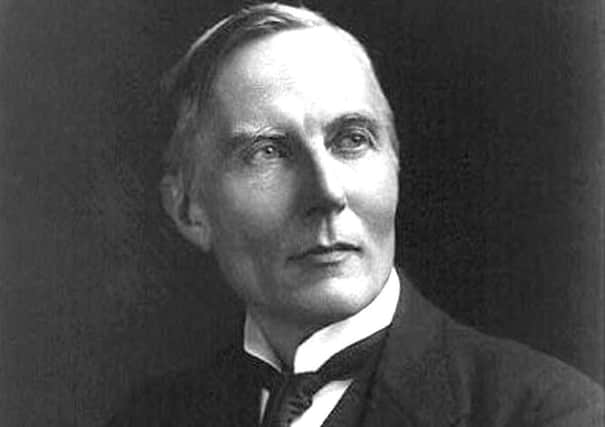Positives from such a destructive war


My father was born in 1908 and at Easter 1920 left full-time schooling aged 12 for part-time work at the local mill. My mother was born in 1909 and went to work from school in 1923 just after her 14th birthday.
My father was barely literate and never read a whole book of any kind until he died just short of 82. My mother borrowed from the public library nearly every week, taught me to read and write, and wrote immaculate letters in perfect prose with correct spellings.
Advertisement
Hide AdAdvertisement
Hide AdThese contrasting life stories were the consequence of the war-time Fisher Education Act of 1918, which eventually raised the school-leaving age from 12 to 14 and abolished part-time education. (That HAL Fisher, a professional historian, was drafted into government by prime minister Lloyd George to devise a radical educational reform speaks for a new, war-time enlightenment!).
Coincidentally, because my birthday was in 1934, the Butler Education Act of 1944 allowed me to take the first Eleven Plus the following year to qualify for free secondary schooling. So I was a direct beneficiary of World War Two as my mother (and I) had been of World War One. But these family “gains” were not entirely free of losses. My father’s eldest brother never really recovered from German imprisonment when he nearly starved to death during the last months of 1918. And my mother’s eldest brother, who was conscripted on his 18th birthday in May 1918, had already lost a foot and the use of his left arm on the Western Front by the time of the Armistice. They might have had something different to say about the “benefits” of their war.
Like any account of such a cataclysmic event as the Great War, it can be seen from many different, and often conflicting, views. Not all the 46 million subjects of George V were affected in the same ways. Of the six million men who served in the British armed forces, 761,000 were killed, 1.6 million were seriously wounded, and an untold number of them permanently scarred. Eighty thousand were treated for shell-shock. Less often quoted is the figure of 200,000 war widows and the 350,000 fatherless children, as well as the millions of parents and siblings who could not believe that their sons and brothers had died in vain.
For instance, one young lady who could not join the frenzied celebrations that greeted news of the Armistice was Vera Brittain, friend of Winifred Holtby, future mother of Shirley Williams. She had lost her beloved fiance, two of her closest male friends, and, not least, her brother.
Advertisement
Hide AdAdvertisement
Hide AdApologists for those who took Britain and its world-wide empire to war in August 1914 point out that it saved the nation from three impending menaces: a general strike of organised labour, suffragette militancy and civil war in Ireland.
The pre-war “triple alliance” of coal miners, railway workers and dock labourers was actively preparing for a concerted strike in the summer of 1914, which would have paralysed the economy; but the outbreak of war with Germany pre-empted it. After the war it was revived in a weaker combination, but it was never as strong as its predecessor.
The suffragette movement was also blunted and split by the war. Emmeline Parkhurst and her daughter, Christabel, became enthusiastic patriots. They offered their service to the war effort, whereas Sylvia, the socialist daughter, remained a pacifist. By denying the franchise to women under 30, the Lloyd George government ensured that 13 million male voters greatly outnumbered the 8.5 million new women voters. Ten years later, this inequality ended without opposition. So one of the most valuable outcomes of the war was that “it smoothed the way for democracy”.
The so-called “Irish Question” had exasperated and bedevilled British politics since the days of Queen Elizabeth I. War with Germany saved Ireland from a civil war between the majority Catholic Home Rulers and the minority Protestant Unionists, but it also encouraged Irish republicans to stage an armed rebellion at Easter 1916 in Dublin. The rising was a failure: republicanism then had little support in Ireland. However, the execution of the rebel leaders by firing squad without trial turned Irish nationalists into republicans. By 1918 Britain had lost Ireland or at least 26 of its 32 counties. Lloyd George “the Welsh Wizard”, fooled the Sinn Feiners into believing that the separation of the six counties of the North was only temporary, thereby prolonging the “Irish Question”.
Advertisement
Hide AdAdvertisement
Hide AdUnderstanding and evaluation of the First World War has been skewed by experience of the second and its aftermath. Few have ever doubted that the war of 1939-45 was not entirely justified. It was fought defensively by the Allies against monstrous invaders who inflicted appalling atrocities. It put a final end to the threats of expansionist aggression from Germany and Japan. It was a good war. Who could have thought otherwise when they saw newsreels of Belsen or British skeletons emerging from Japanese prison camps?
In contrast, even before the Armistice, doubts about the conduct of the First World War had begun to surface, particularly from those who had lived and died on the Western Front, though it was not until a decade later that they went into printed poetry and autobiography. By the 1960s it had become the fashion to condemn the callous incompetence of generals and politicians who had sent innocent young men to certain death. The jury, as they say, is still out: historians continue to squabble amongst themselves. All key events are “legendised”; none more so than wars. Just as the Great War was depicted in British propaganda as an heroic cause to save “civilisation”, ever since 1939 the Second War has been turned into a sentimental black-and-white moral fable. Though it now seems a little late, perhaps we can exorcise First War mythology before we tackle that of the Second.